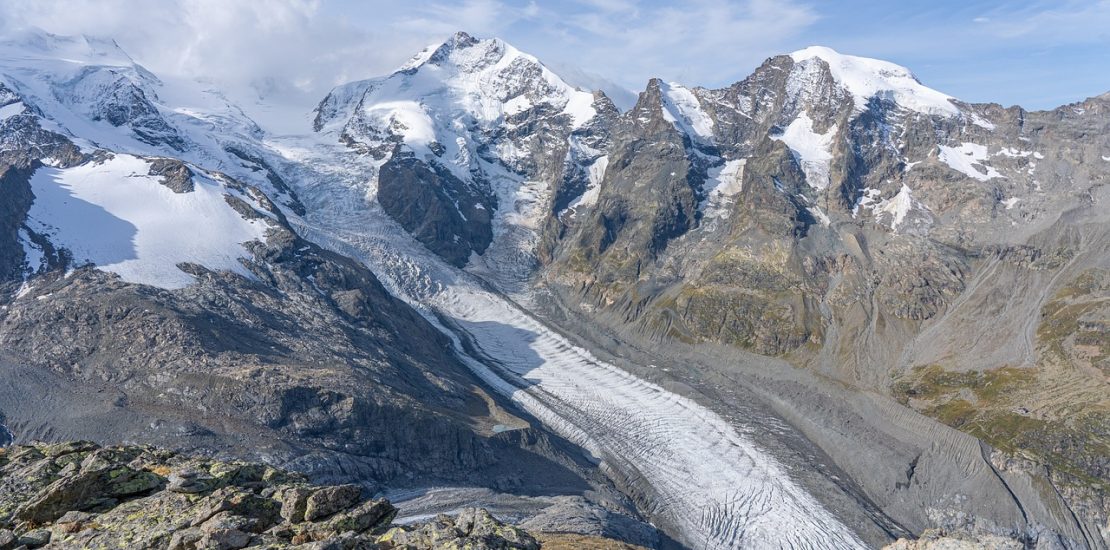New study suggests that two out of three glaciers could be lost by 2100.
- January 9, 2023
- Posted by: Sinead Sprigg
- Category: Environmental, Global, Water Issues, Arctic & Antarctica, Europe, North America

Scientists have made new projections of glacier mass loss through the century under different emissions scenarios.
Assistant Professor David Rounce of Civil and Environmental Engineering at the College of Engineering, Carnegie Mellon University led an initiative that produced new projections of glacier mass loss through the century under different emissions scenarios.The projections showed that the world could lose as much as 41 percent of its total glacier mass this century — or as little as 26 percent — depending on today’s climate change mitigation efforts.
In one scenario, Rounce and his team found that with continued investment in fossil fuels, over 40 percent of the glacial mass will be gone within the century, and over 80 percent of glaciers by number could well disappear.
Even in a best-case, low-emissions scenario, where the increase in global mean temperature is limited to +1.5° C relative to pre-industrial levels, over 25 percent of glacial mass will be gone and nearly 50 percent of glaciers by number are projected to disappear.
A loss of this scale would negatively impact local hydrology, tourism, glacier hazards, and cultural values.
Rounce hopes that the work will spur climate policymakers to lower temperature change goals beyond the 2.7° C mark that pledges from COP-26 are projected to hit.
Smaller glacial regions like Central Europe and Western Canada and the United States will be disproportionately affected by temperatures rising more than 2° C. At a 3° C rise, glaciers in these regions almost disappear completely.
Rounce noted that the way in which glaciers respond to changes in climate takes a long time – even a complete halt to emissions would still take between 30 and 100 years to be reflected in glacier mass loss rates.
